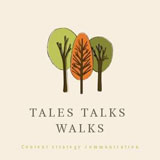‘Afghanistan is my watan, but Kolkata is my mulk’ – stateless Kabuliwalas of Bengal
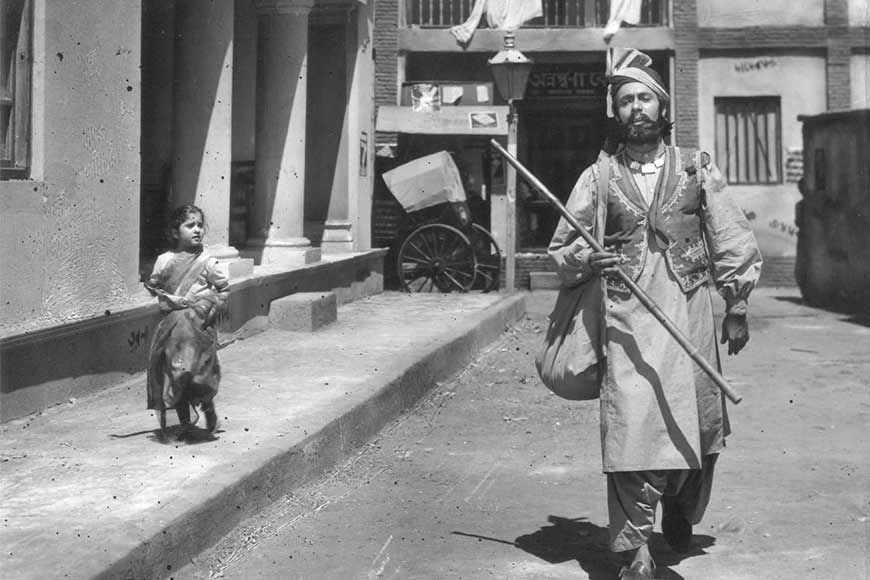
Bengali readers’ fascination with people from Kabul began more than a century ago when Rabindranath’s short story, ‘Kabuliwallah’ was published in 1892. It was the tale of Rahmat, a man from a distant land - Afghanistan - living in Kolkata and his friendship with little Mini --- that helped shape a romantic image of Afghans in Bengal and beyond. A community of 5,000 Afghans found a home in Kolkata over a century ago. The name from Tagore’s story is still in use and the Afghans of Kolkata are called Kabuliwalas and they still carry with them their distinct tradition even if their numbers have dwindled.
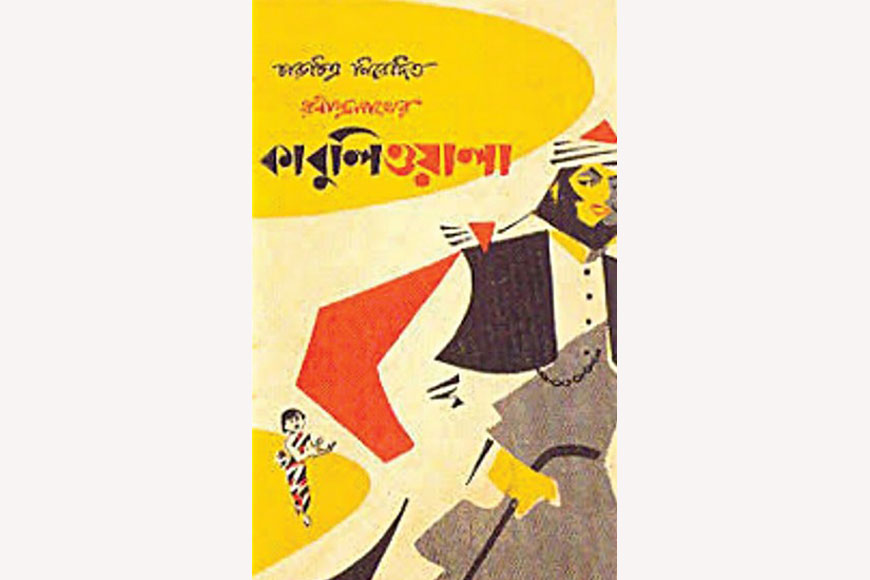
Long before Afghan refugees started coming to India in the 20th and 21st century to escape the Taliban oppression and war at home, in the 19th century came the Afghan businessmen or Kabuliwalas as they were called in Bengal. Most came to sell asafetida, dry fruits and attar (perfumes), or were moneylenders. Calcutta, the capital of colonial India, was a popular destination. In the initial days, Kabuliwalas went from door-to-door selling their wares. Back then locals were scared of them and looked at them with suspicion, may be due t their rugged and tall stature. However, after the stupendous success of the film Kabuliwala, (Tagore’s story was adapted on screen both in Hindi and Bengali) people started becoming friendly. Over the decades, they have moved to other businesses, including setting up tailoring shops in the city’s Burrabazar area.
Age-old customs and traditions link the generations and have kept this little-known community going. Many of the Kabuliwalas, though born in Kolkata, lead the life of ‘stateless’ people without any citizenship documents. But regardless of their official status, the city offers them a final resting place in its graveyards. Though called Kabuliwalas by locals, they identify themselves as Afghan-Paktoons and “want the Pashtunistan region, presently part of Pakistan, to be separated from Pakistan and united with Afghanistan,” says Yasmin Nigar Khan, great granddaughter of Khan Abdul Gaffar Khan and president of the All India Pakhtoon Jirga –e-Hind.
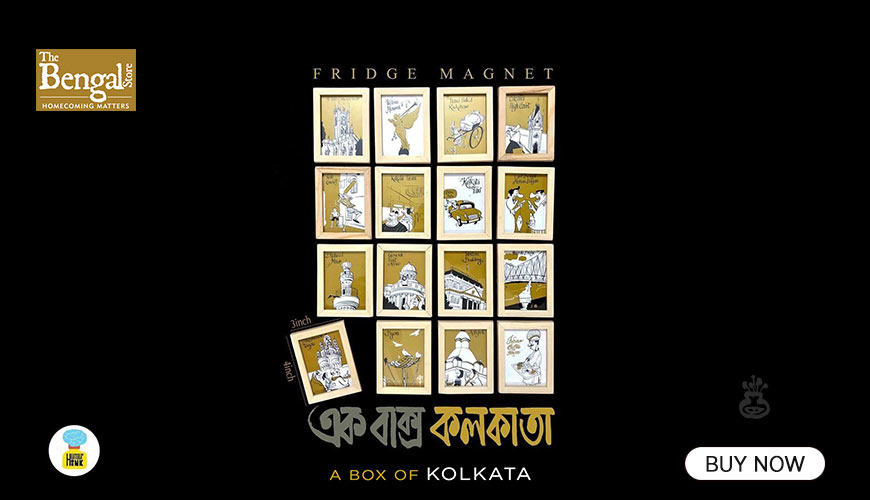 The Paktoons are proud of their native land, its language and culture and this sense of pride is instilled among the young generation, born and brought up in India. At home they are taught about their illustrious history and culture of their country and made to speak Pashto among themselves. The Kabuliwalas of Afghanistan prefer to stick together as a community and live mostly in the business district of Central Kolkata. Their homes are generally referred as Khan-Kothi. There are over 150 Khan Kothis spread across the city - bachelor pads - where these Pathans live with others of their communities. While some Kabuliwalas now live with their families, it is still more common for most Kabuliwalas to keep their family in the village, mostly because they find the city way too expensive.
The Paktoons are proud of their native land, its language and culture and this sense of pride is instilled among the young generation, born and brought up in India. At home they are taught about their illustrious history and culture of their country and made to speak Pashto among themselves. The Kabuliwalas of Afghanistan prefer to stick together as a community and live mostly in the business district of Central Kolkata. Their homes are generally referred as Khan-Kothi. There are over 150 Khan Kothis spread across the city - bachelor pads - where these Pathans live with others of their communities. While some Kabuliwalas now live with their families, it is still more common for most Kabuliwalas to keep their family in the village, mostly because they find the city way too expensive.
Afghani men are very fond of outdoor sports. If you drop in at the Maidan on Sundays you will see many Kabuliwalas playing cricket in their traditional attire. The Khans meet at the Maidan to celebrate Eid in the traditional Afghani way every year. Dinner at the Khans is a traditional meal. The youngest person of the house comes in with a jug and a bowl into which each washes their hands. The Dastarkhwan is spread over the carpet and big rotis are put in front of each. Two huge bowls of gosht shorba are kept, into which the Kabuliwalas dip their roti. The meal ends with generous dollops of curd being added to the shorba, followed by green tea.
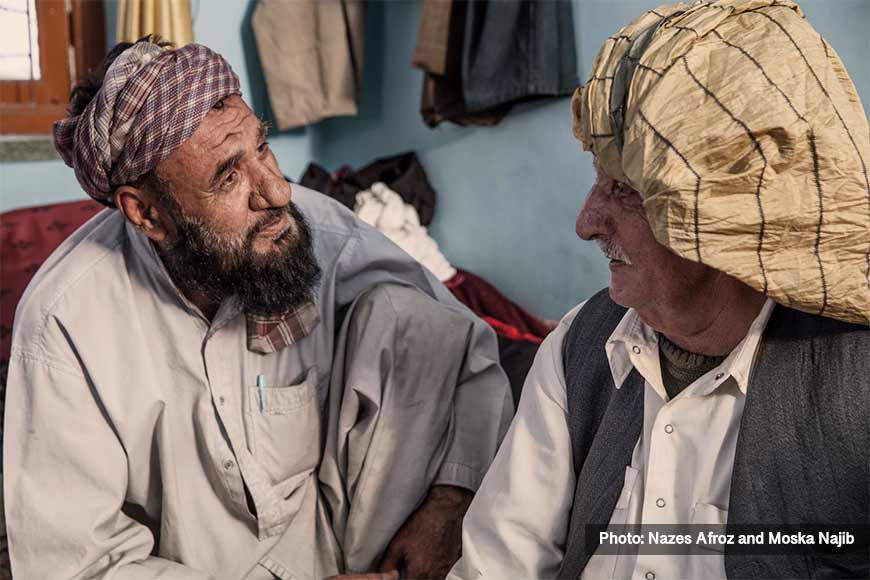 Two members of the Kabuliwala community who have been living in Kolkata for the past 60 years
Two members of the Kabuliwala community who have been living in Kolkata for the past 60 years
After Independence, as formal trade between the countries opened, the Kabuliwalas found their market for dry fruits and asafetida shrinking. In the past, many of them had engaged in money-lending with an interest. Now, about 60-80 per cent of them have taken it up as a profession. But it’s a profession that most of them want to discontinue. One reason for that is because earning a living on interest is considered “haram” in Islam. The other reason is because an increasing number of them are getting cheated by their clients.
Stories of a Kabuliwala’s tenacity in following up with those who owe him money are popular – in fact, a nag or person of extreme tenacity is often termed a Kabuliwala in Bengal. These days, the money-lending business is dwindling, hence Kabuliwalas are taking to garment shops selling intricately embroidered silks and velvets, fabrics for Pathani suits and turbans that sometimes are brought in from Afghanistan or Indian weaves that are taken from here to Kabul.
Many of the Kabuliwalas, even those born in India or living here for years, still don’t have Indian citizenship. Sometimes it’s just because a reluctance on their part to give up their Afghan identity. Or else plain ignorance. Many of the Kabuliwalas, especially middle-aged ones, are not very educated and never got a birth certificate made. Many continue to live on long-stay permits. But even those with an Indian birth certificate and Aadhar card say it is difficult getting a passport.
Few, if any of Kolkata’s Kabuliwalas want to relocate to Afghanistan. They just want to visit, meet family members living there and may be, marry an Afghan girl. For all other purposes, Calcutta is home. As Rahim Khan, a Kabuliwala with a garment shop in Central Kolkata says: ‘Afghanistan is my watan, but Kolkata is my mulk. I can’t forget either.’ And so local spices add their flavour to the Kabuliwala’s traditional cuisine, the carpets on their floors is no longer Afghani but bought from a shop in the city, the strains of the rabab and beats of Afghani dholak are often replaced by the electronic keyboards even as they sing their Pashto ballads and odd little words of Bangla and Hindi find their way into their conversations.







